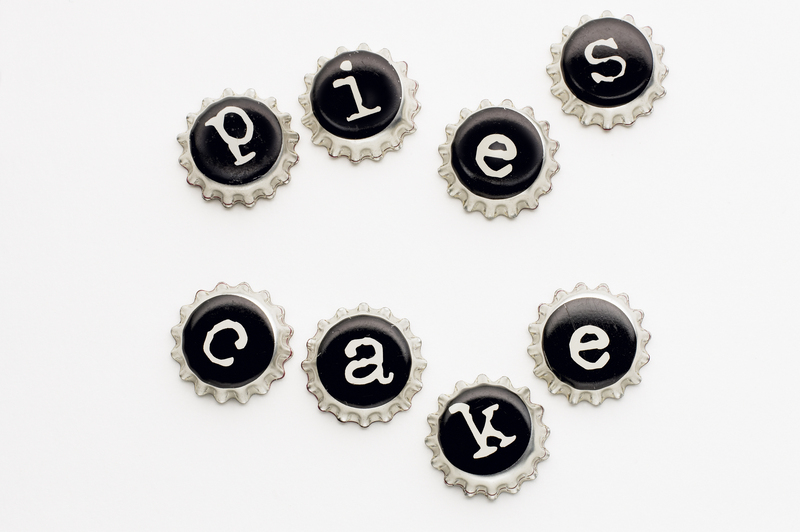Effortlessly Improve Home Recycling with Our Essential Guide
Are you looking to effortlessly improve home recycling and make a meaningful environmental impact? Our essential guide is your starting point for creating an efficient, easy-to-follow recycling system in your own household. Whether you're new to recycling at home, or seeking ways to streamline your routine, this expert-curated article offers practical tips, detailed advice, and actionable strategies for optimizing your home recycling practices.

Why Recycling at Home Really Matters
Every day, our homes generate significant amounts of waste--much of which ends up in landfills due to improper sorting or lack of awareness. Home recycling is a powerful, practical way to:
- Reduce landfill contributions
- Conserve natural resources
- Save energy
- Lower your household's carbon footprint
The positive impact of improving home recycling grows exponentially when households in a neighborhood or community follow suit. By understanding and applying modern recycling strategies, you can become a catalyst for green change, starting right from your kitchen or living room.
Understanding the Basics of Effective Home Recycling
Before you begin enhancing your home recycling system, it's crucial to understand what materials are accepted by your local recycling program. Municipal guidelines often vary, so check your city or county's website for up-to-date information.
Main Categories of Home Recyclables
- Paper -- newspapers, magazines, mail, office paper, cardboard
- Plastics -- bottles, containers (check recycling codes on the bottom: #1 and #2 are most widely accepted)
- Metals -- aluminum cans, tin cans, foil
- Glass -- most glass beverage and food containers (cleaned and free of caps)
Remember: Contamination is the number one reason for recyclable materials being sent to landfill. Always rinse containers and avoid including greasy, soiled, or inappropriate materials.
10 Effortless Ways to Improve Recycling at Home
Want to step up your home recycling routine without a lot of extra work? Follow these smart, actionable steps:
1. Designate Convenient Recycling Stations
Identify the main waste-generating spots in your home--typically the kitchen, home office, and bathroom. Place clearly labeled bins in these areas to encourage participation from all household members.
2. Educate Your Family or Roommates
A successful home recycling program requires everyone to be on board. Teach children and adults what can and can't be recycled, and the importance of reducing contamination.
- Make a chart or infographic and display near bins
- Offer rewards for consistent recycling habits (especially for kids!)
3. Learn Local Recycling Rules
Every city has its own standards. Check for:
- Accepted materials (numbers and colors for plastics and glass)
- Pickup schedules
- Drop-off centers for specialty items
4. Reduce, Reuse, and Then Recycle
The best waste is the waste you never create. Whenever possible:
- Opt for reusable bags, bottles, and containers
- Buy bulk or products with minimal packaging
- Repurpose jars and boxes for organizing
Only recycle what you can't reduce or reuse.
5. Compost Organic Waste
Did you know almost 30% of household waste can be composted? Start a compost bin for food scraps, coffee grounds, eggshells, and yard clippings. This diverts waste from landfills and creates rich fertilizer for your plants.
- Never compost meat, dairy, or oily foods
- Chop large items for faster breakdown
6. Avoid "Wish-Cycling"
Wish-cycling is when people toss items into the bin hoping they'll be recycled. This contaminates the batch and often leads to all contents being trashed. If unsure, use online resources or your local hotline to confirm.
7. Rinse, Flatten, and Sort Materials
- Rinse: Remove food residue from containers to prevent odors and contamination
- Flatten: Cardboard boxes save bin space and make hauling easier
- Sort: Some programs require separation of glass, paper, or plastics
8. Safely Recycle Electronics and Batteries
Electronics and batteries contain hazardous materials and should never go in regular recycling or trash bins.
- Find community e-waste recycling events
- Visit retailer take-back programs for old devices and batteries
- Check if your local recycling center accepts these items
9. Donate or Sell Usable Items
Give gently-used clothing, furniture, and home goods a second life through donation or online resale platforms. This reduces landfill waste and helps your community.
10. Track Your Progress and Celebrate Success
Set monthly recycling goals and track your household's waste output. Celebrate milestones and continually look for ways to refine your process.
What to Never Put in Your Home Recycling Bin
Common contaminants can ruin whole batches of recyclables. Always keep these out:
- Plastic bags and film
- Greasy pizza boxes, paper towels, napkins
- Ceramics, mirrors, Pyrex glass
- Hazardous waste (paint, pesticides)
- Food, liquids
- Styrofoam (unless accepted locally)
If in doubt, check with your municipality rather than assume. It's better to throw away a questionable item than to contaminate your recycling.
Advanced Tips for Optimizing Your Home Recycling Routine
Once you've covered the basics, try these advanced strategies to further improve your home recycling habits:
- Embrace "precycling": Choose products with recyclable or minimal packaging at the store.
- Start a neighborhood recycling group: Combine efforts to reduce truck emissions and bulk-sort items.
- Upcycle: Turn would-be trash into craft, decor, or storage solutions at home.
- Stay updated: Regulations change periodically; sign up for municipal newsletters or connect with local eco groups.
The Role of Smart Technology in Home Recycling
Smart recycling bins, barcode scanning apps, and digital reminders can help automate and simplify sorting. Some smart bins even track usage and notify you when it's time to take materials out.
- Use apps like Recycle Coach, iRecycle, or local utility apps for guidance and schedules
- Invest in sticker labels or color-coded bins for easier separation
Common Mistakes to Avoid When Recycling at Home
Recycling is easy, but not always intuitive. Here are frequent missteps to avoid:
- Not cleaning containers: Dirty items clog machines and attract pests
- Bagging recyclables in plastic: Loose items only--bags jam up recycling equipment
- Nesting materials together: Separate different items (e.g. glass from metal lids)
- Ignoring special waste: Batteries, bulbs, and electronics need unique disposal methods
Recycling Myths Debunked
Clarity helps you recycle more confidently! Let's set the record straight:
- Myth: "Everything with the recycling symbol is recyclable." Fact: Many items (like some plastics and composites) aren't accepted in all curbside programs.
- Myth: "It doesn't matter if I mix in a little trash." Fact: Even small contaminants can ruin recycling loads.
- Myth: "All recyclables are actually recycled." Fact: Proper sorting and clean bins dramatically improve the chances materials get recycled.
- Myth: "Home recycling doesn't make a difference." Fact: Collectively, household efforts reduce mountains of waste every year!
Frequently Asked Questions about Home Recycling
What if my apartment or building doesn't offer recycling?
Ask your property manager to initiate a recycling program, or find community drop-off points. Many local centers accept recyclables for free.
Can I recycle plastic bags at home?
Plastic bags usually require separate collection and should not go in regular bins. Most grocery stores provide bag recycling receptacles.
Is shredded paper recyclable?
Often, but check local rules. Some programs require special bagging or direct drop-off at a recycling center to avoid mess and contamination.
How do I handle hazardous waste (batteries, paint)?
Never dispose of hazardous materials with regular trash or recycling. Look for scheduled hazardous waste collection days or retail programs that accept these items.

Conclusion: Start Fostering a Greener Home Today!
Improving recycling at home doesn't have to be overwhelming or time-consuming. By understanding the basics, setting up effective stations, and empowering your family or roommates, you can make a big difference with little effort. Effortlessly improve your home recycling starting this week--adopt a couple of these tips, and watch your waste shrink while your positive impact grows!
Remember, every small step you take improves your local community and helps the planet as a whole. Share this essential home recycling guide with friends and neighbors to broaden your eco-friendly circle.
Further Reading & Resources
Ready to make a difference? Start recycling better at home today!
```